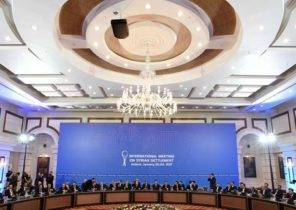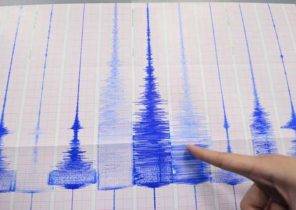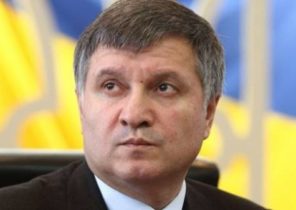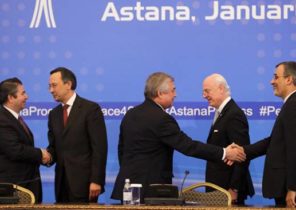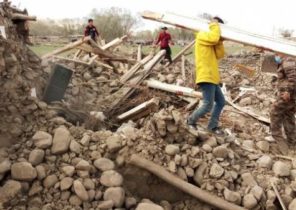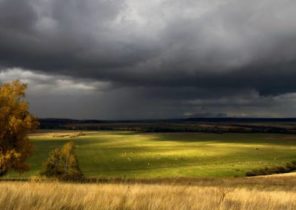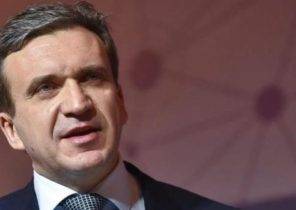If no end to repeating that Russia has a lot of influence for a country whose GDP is “only” equal to Spanish, you can overlook a very important point: Russia is fundamentally different from the Spain square, the history, political system, behavior in the international arena and military Arsenal. Her attitude to the world — a mixture of saved effects, a new challenge and the changing correlation of forces. This is perfectly shown in the study “Russia in the world” Anne de Tengah (Anne de Tinguy) and her colleagues.
After the intervention in Georgia in 2008 Russia is once again seen as a world power. This was followed by the annexation of the Crimea, destabilization of Ukraine, interference in Syria, returning to the Mediterranean and Africa (Libya, Central African Republic, the summit Russia-Africa in Sochi in 2019…).
In the maelstrom that caught the Kremlin by surprise the world of the epidemic and after the amendments to the Constitution Russia is a power to be reckoned with, though her wound isn’t healed up yet. Her strategy surprised the ability to interfere with others, but is it able to constructive cooperation? Her leadership has improved but to what end?
Allies hurt powers
The army is upgraded (and there are 6 500 nuclear warheads), but the Russian economy is in difficulty and depends on fallen with the price of energy rents, demography is in decline, and there are signs of fatigue, despite the patriotism. Vladimir Putin has awakened forces in Russia after the chaos of the Yeltsin years, and no one now no longer tries to exclude it from the international “great game”. Nevertheless, the remaining from the end of the USSR, the wound is still not healed. Territorial losses (5.3 million square kilometers, 10 times the size of France), the collapse of ideology and the expansion of NATO became a humiliation, which has always been a bad adviser in foreign policy.
Therefore, Russia began to recover. Who are her allies? The Central question concerns the rapprochement with China. Moscow does not trust Beijing (especially in Eastern Siberia), the understanding which has always been ephemeral. Anyway, now there are combinations to counteract America, and the current convergence around authoritarianism and sovereignty should not be underestimated. The second ally was against his will: America trump did not miss the occasion to promote Russia’s geopolitical plans. But it won’t last long, and Moscow has sought as quickly as possible to extract the maximum benefit. There are other developments, but also the time and sometimes unnatural rapprochement with Egypt and Turkey, relations with Iran. Finally, the “anti-liberal” fashion in the EU provides leverage with Moscow. But it’s still not allies: the Russian Empire is left alone. Meanwhile, Kiev is lost, baits and vegetable garden.
Strategy jamming
Putin is a chess grandmaster, Putin, standing for interference in the elections, Putin — “God from the machine”… Russia and its President see everywhere, but as a hindrance. As is clear from Marange Celine (Céline Marangé), Russian influence is real, but limited. The strategy makes use of the weaknesses of the opponents, particularly in the West. Create new tools of information warfare: the rhetoric of the “Russian world”, the international forums (the club “Valdai”), expert group (Council on foreign and defense policy), magazines (Russia in Global Affairs), Association (Russian international Affairs Council), the Agency of soft power (Rossotrudnichestvo), funds (“Russian world”).
The question for the future is the following: can Russia create anything but noise to seriously considered as a partner in the construction of the “world of tomorrow”, as well as in the discussion of the new Covenant trust the great powers and the European security? Can Russia with his army become a factor of stability? Her culture allows it, but if she really wants this she?
What will be the end of Putin’s rule?
The President of Russia, apparently, will remain in place for a long time. In any case, he gave himself the opportunity in the new Constitution, which deserves attention. Marie Elizabeth Baudouin (Marie-Elisabeth Baudoin) notes that the text represents both large-scale and successive revision, whose implications go beyond the personality of Putin himself. From a geopolitical point of view this raises another question: is Putin who will take advantage of renewing in 2024 to potentially go to 84 years old in 2036, will perceive yourself differently than an unknown young leader who stood at the helm and 47 years in 2000. How it will look in foreign policy at the end of Putin’s power? He too likes surprises, so on this score it was possible to make some predictions. Anyway, there are several scenarios of the end of power in an authoritarian system.
It is impossible to exclude a new stagnation in the Brezhnev-style. A significant portion of the population will know only one aging President, and in such an environment may increase internal tensions and external adventurism to divert attention. Another option: Putin has the geopolitical project, which he intends to bring to an end to restore the power of Russia, as he understands it. It is also not encouraging. We’ll see if he has this power, and let other powers him to do it. Finally, Putin may seek to fix the system, he believes, Russia is a strong presidential power, and also to remove the tension in the external relations of the country. It would be the lesser evil. In any case, can America and Europe not to be mistaken with the strategy?
